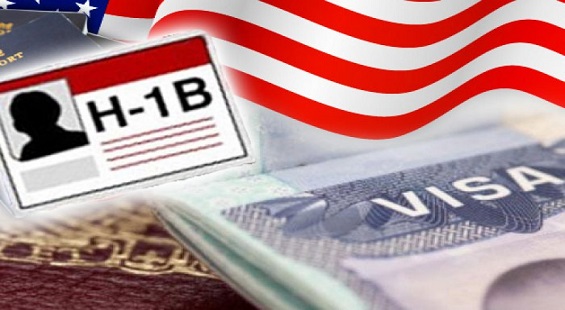 Lawmakers including Ro Khanna say forcing them to leave “harmful to our nation’s long-term economic competitiveness”
Lawmakers including Ro Khanna say forcing them to leave “harmful to our nation’s long-term economic competitiveness”
Amid the ongoing wave of tech sector layoffs, five Silicon Valley lawmakers have asked the USCIS to extend the 60-day grace period for laid-off H-1B holders to ensure high-skilled immigrants can remain in the US.
In a letter to US Citizenship and Immigration Services (USCIS) Director Ur Jaddou, Monday the legislators inquired about the agency’s efforts to ensure high-skilled immigrants can remain in the US after losing their jobs, and thus their employment-based visas.
Read: FIIDS seeks H-1B grace period extension to 180 days (March 23, 2023)
Led by US House member Anna G. Eshoo, the letter was signed by Zoe Lofgren, former Chair of the House Subcommittee on Immigration and Citizenship, as well as Ro Khanna, Jimmy Panetta, and Kevin Mullin, all Democrats.
The H-1B non-immigrant visa is the most sought-after work visa among high skilled foreign professionals with Indians getting about 70% of 85,000 such visas issued annually in recent years.
“This group of immigrants possesses skills that are highly valuable in today’s knowledge-based economy and forcing them to leave the US is harmful to our nation’s long-term economic competitiveness,” wrote the lawmakers.
“This issue is of great importance to our constituents because layoffs in the tech sector have accelerated in recent months,” they wrote noting the number of tech jobs lost since the beginning of 2023 has already surpassed the total number of layoffs in 2022.”
Read: Panel for extending grace period for H1-B workers to 180 days (March 15, 2023)
The letter also requests the USCIS to release data detailing the impact of the layoffs on affected immigrants; inquires about whether USCIS has issued guidance to adjudicators in response to the layoffs; and urges USCIS to extend the 60-day grace period for laid-off H-1B holders to secure a new job before losing their legal status.
This letter follows up on a letter Eshoo and Lofgren sent on Dec 22 urging USCIS to extend the H-1B grace period from 60 to 120 days.
Taking note of Jaddou’s Jan 25 response that a lengthy rulemaking process would take too long to benefit immigrants who are currently at risk of losing their legal status, the lawmakers suggested an alternative approach.
Urging “USCIS to pursue an extension of the grace period, either as a standalone regulatory change or as part of a broader effort to reform the H-1B program,” the lawmakers wrote they believed “extending the grace period will strengthen our country’s ability to retain immigrant talent in the future.”
The lawmakers noted that USCIS had suggested that laid-off H-1B holders unable to find a new employer to sponsor their H-1B visa, should apply for other nonimmigrant visas, including B-1/B-2 visitor visas, H-4 dependent spouse visas, and F-1 student visas.
Noting that individuals are still struggling to maintain legal status after losing their jobs due to layoffs, the lawmakers asked USCIS to tell them by May 5 about the actions it has taken to respond to recent layoffs
“Your answers will inform our legislative efforts to ensure laid-off H-1B holders can remain in the US and continue contributing their talents to our country,” they wrote.
The questions asked by lawmakers include:
Over the past six months, approximately how many H-1B visa holders have successfully maintained legal status after losing their jobs and how many have departed the country or accrued unlawful presence?
What are the approval and denial rates, broken down by visa category, for newly unemployed H-1B holders who have applied for the nonimmigrant visas listed in the Dec 19 USCIS fact sheet?
Approximately how long does it take for USCIS to process visa applications submitted by newly unemployed H-1B holders?
Read: US lawmakers write to immigration agency on impact of massive layoffs in tech sector (April 13, 2023)
What guidance, if any, has USCIS issued to adjudication officers in response to ongoing layoffs in the tech sector?
Are newly unemployed H-1B holders penalized when applying for B-1/B-2 visitor visas?
Because B-1/B-2 visas are intended for short-term visits to the US, the lawmakers were concerned that adjudicators will deny visas to laid-off H-1B holders, many of whom have lived in the US for years, on the grounds that these individuals do not have sufficient ties to their home countries to demonstrate that they intend to leave the US once their visas expire.
Read: How workers can stay in the US after losing jobs (December 20, 2022)
Read: Tech giants want US to let foreign workers’ adult kids stay (June 9, 2022)



